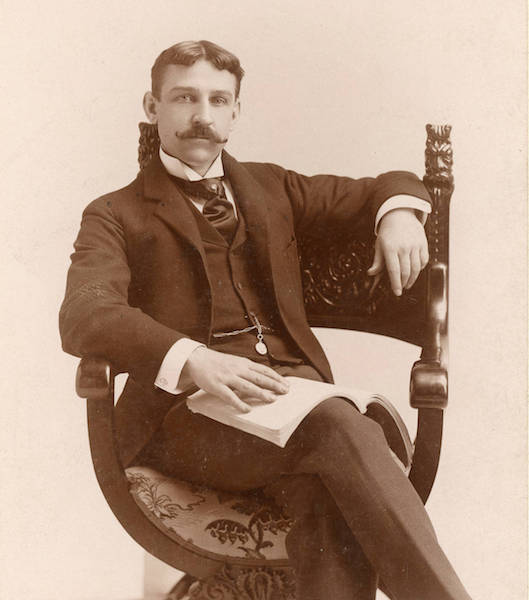Difference between revisions of "Edwin Milton Royle: Mormon Playwright"
From MormonWiki
| Line 1: | Line 1: | ||
| − | [[Image:Edwin_Royle.jpg| | + | [[Image:Edwin_Royle.jpg|250px|thumb|alt=Edwin Royle Mormon Playwright|left]] |
'''Edwin Milton Royle''' was a playwright. His best-known play was ''The Squaw Man'' (1905), which was the first Hollywood film that Cecil B. DeMIlle directed in 1914. More than thirty of his plays were produced and performed, including ''Launcelot and Elaine,'' ''Her Way Out,'' ''The Unwritten Law,'' and ''The Silent Call,'' which he also directed, ''Friends,'' ''The Struggle Everlasting,'' and ''These Are My People.'' | '''Edwin Milton Royle''' was a playwright. His best-known play was ''The Squaw Man'' (1905), which was the first Hollywood film that Cecil B. DeMIlle directed in 1914. More than thirty of his plays were produced and performed, including ''Launcelot and Elaine,'' ''Her Way Out,'' ''The Unwritten Law,'' and ''The Silent Call,'' which he also directed, ''Friends,'' ''The Struggle Everlasting,'' and ''These Are My People.'' | ||
Revision as of 20:49, 17 February 2018
Edwin Milton Royle was a playwright. His best-known play was The Squaw Man (1905), which was the first Hollywood film that Cecil B. DeMIlle directed in 1914. More than thirty of his plays were produced and performed, including Launcelot and Elaine, Her Way Out, The Unwritten Law, and The Silent Call, which he also directed, Friends, The Struggle Everlasting, and These Are My People.
Royle was born on March 2, 1862 in Lexington, Missouri. He lived for a time in Salt Lake City and died on February 16, 1942, in New York City. He was a member of The Church of Jesus Christ of Latter-day Saints. He and his wife, Selena Fetter had a daughter, Selena Royle, who was a successful stage and film actress.
